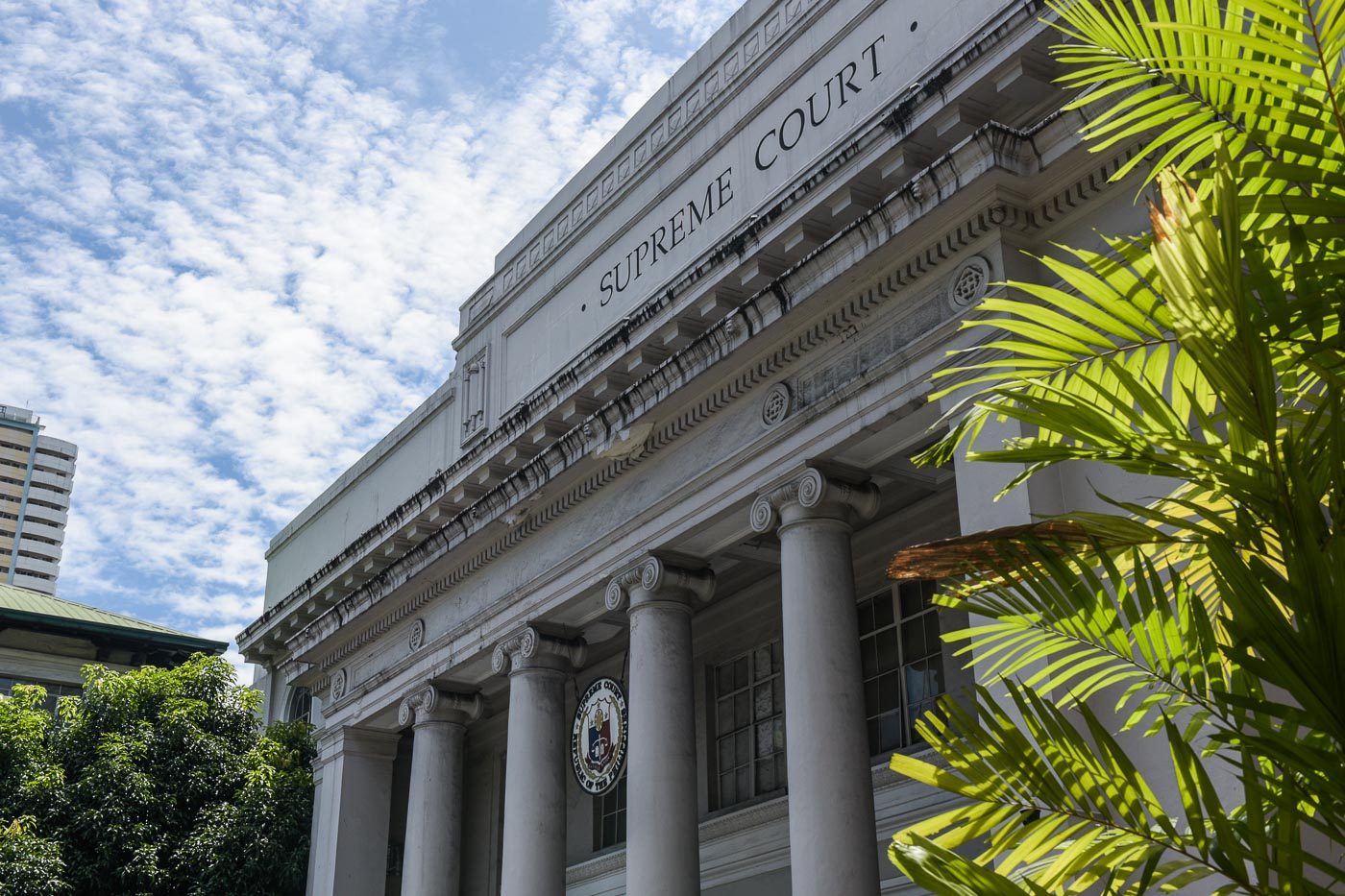SUMMARY
This is AI generated summarization, which may have errors. For context, always refer to the full article.

MANILA, Philippines – The Supreme Court clarified the “good faith” doctrine, saying that heads of offices cannot always cite it to get away with an offense, especially if circumstances indicate that they should have inquired further about transactions and made sure these were legal.
The High Court made this clarification in a recent decision that junked the appeals of public works officials from the Autonomous Region in Muslim Mindanao (ARMM) who were convicted of graft by the Sandiganbayan.
Department of Public Works and Highways (DPWH)-ARMM executives Farouk Abubakar, Ulama Baraguir, and Dtukan Guiani were found guilty of graft over P615 million worth of projects that did not go through public bidding, were overpriced, and had bloated accomplishment reports.
The convicted officials went to the Supreme Court to appeal for a re-trial, citing a previous decision in Arias vs Sandiganbayan, which says that it is reasonable and acceptable for heads of offices “to rely to a reasonable extent on their subordinates and on the good faith of those who prepare bids, purchase supplies, or enter into negotiations.”
In junking their petitions, the SC’s Third Division said, “The doctrine allowing heads offices to rely in good faith on the acts of their subordinates is inapplicable in a situation where there are circumstances that should have prompted the government officials to make further inquiries.”
“The rules on competitive public bidding and those concerning the disbursement of public funds are imbued with public interest. Government officials whose work relates to these matters are expected to exercise greater responsibility in ensuring compliance with the pertinent rules and regulations,” the Court said in a decision penned by Associate Justice Marvic Leonen.
Irregular transactions
The Sandiganbayan found that the DPWH-ARMM awarded excessive mobilization fee to Arce Engineering Services for a survey work. Mobilization fees are money given to a contractor to help them cover the initial cost of the project before they are paid.
The SC said that, as early as the mobilization phase, irregularities in the transactions were already apparent.
“This should have already roused suspicion from petitioners Baraguir and Guiani, who were the last signatories and final approving authorities,” the Court said.
The Court added that the officials should have declined to give a 30% mobilization fee, because the rule is that the limit should be 15%.
“The rules on public bidding and on public funds disbursement are imbued with public interest. The positions and functions of petitioners Abubakar, Baraguir, and Guiani impose upon them a greater responsibility in ensuring that rules on these matters are complied with. They are expected to exercise a greater degree of diligence,” the Court said.
The good faith doctrine played a huge role in the Disbursement Acceleration Program (DAP), with the Aquino administration using it as defense to pending criminal charges. – Rappler.com
Add a comment
How does this make you feel?
There are no comments yet. Add your comment to start the conversation.